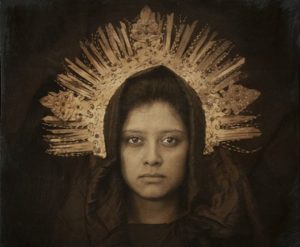So-called evangelization, whether Catholic or evangelical, has focused on the conversion of the soul and has rejected any coming together of the indigenous worldview and “ours.” As a result, the indigenous worldview has been reduced to the practice of witchcraft and Shamanism. Many Catholics and evangelicals have not taken the time to view the native as a complete individual with the same needs to live, create, better himself/herself, and excel as any other human being. The indigenous continue to be used by other Christians to carry out self-serving “goals” without taking into account the native’s goals, a perspective that discounts them as “fellow human beings or neighbors,” let alone someone who must be considered as equally human as oneself. Because discipleship has not taken local cultures seriously, the gospel—which John MacKay speaks of very well in his book The Other Spanish Christ—Christ has been presented as the Child or as the Crucified yet not given the importance of Savior, Lord, or Redeemer.1 The latter demonstrates why translation and literacy go hand in hand. Translation emphasizes finding and improving the technical aspect, while the literacy campaign functions as an invitation to come together and learn more deeply about the particularities of culture, to treat the other as a person.
Western-style evangelization is in a hurry to complete short-, medium-, and long-term goals. In so doing, Westerners fulfill “their obligation” by presenting projects to the indigenous population only so that “their own work” is not interrupted. Time is not taken to train those involved in all that a project entails, such as the areas of administration, the idea of collective ownership, what to do when the project fails, and the value and use of money. The reason is that you have to pay the person who learns a profession, even though the missionaries know one can serve professionally without charging. All of this is to say that the introduction of new ideas and tools had the potential to contribute to indigenous life, but that potential was wasted because no time was spent on the process of helping local people understand those tools. Of course, the conclusion reached by Westerners was that the natives were guilty and solely culpable for not making the most of the tools introduced to them. Unfortunately, these attitudes have not changed much. Western denominations and the Western missionary outlook continue to embody the colonial attitudes of individualism, superiority, and territorialism rather than mutually sharing knowledge, skills, and resources as equals.
Endnotes
1See John Alexander Mackay, The Other Spanish Christ: A Study in the Spiritual History of Spain and South America (New York: Macmillan, 1933).


